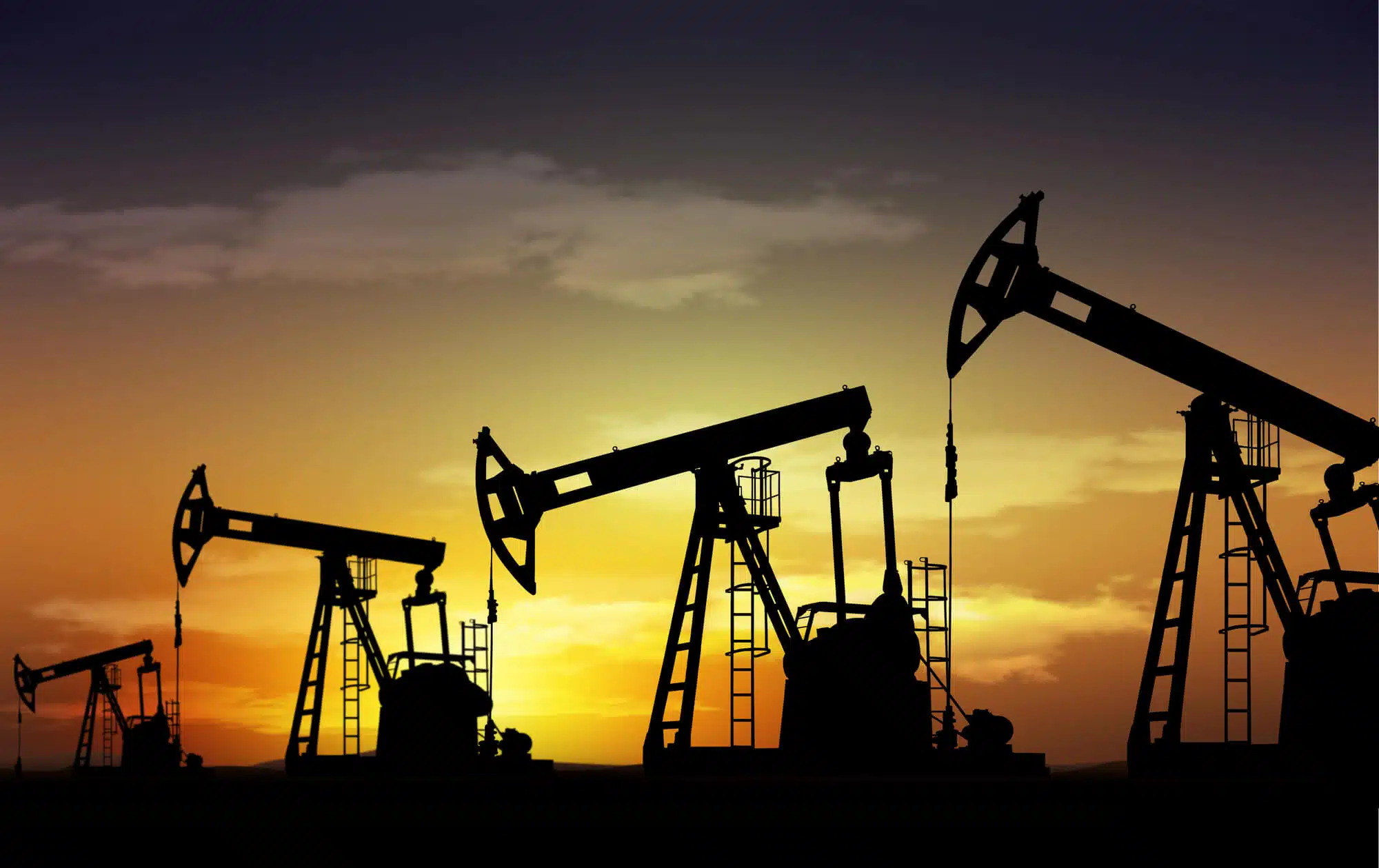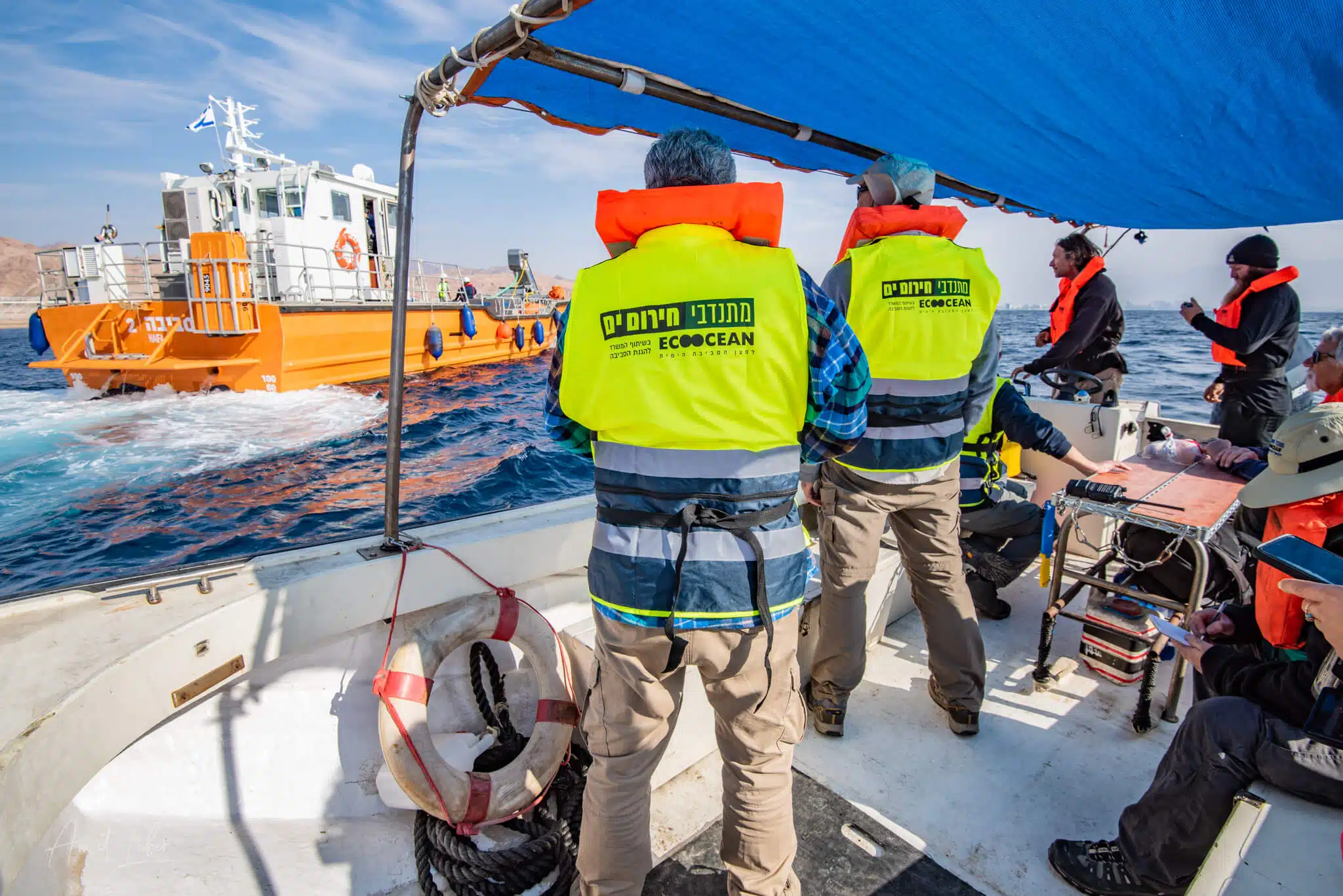Opinion: Despite the objections of experts and residents, these days the Prime Minister's Office is examining the expansion of the transportation of the oil of Katsa'a; In light of the dangers involved in such a course - it seems that our government simply does not care enough about the damages of one of the most polluting industries in the world
By Dr. Michal Stern, Angle - Science and Environment News Agency

Every 2 minutes, all over the world, we consume crude oil in the amount of a full Olympic pool. Think about it, a full Olympic pool - which empties at an enormous speed - for using one of the most polluting and problematic substances in the world.
Today, many of us already know: the oil industry is destructive - from its production, to its burning, through the pollution it creates - this substance causes many problems and its use even exacerbates the climate crisis.
And these days, another and problematic aspect of this industry is once again making headlines in Israel: despite objections from experts and residents due to the environmental dangers during which the Prime Minister's Office is examining the expansion of the oil transportation of the Katsa Company - pipelines that connect the company's facilities in Eilat and Ashkelon, as an oil bridge Overland between the Persian Gulf, China and the Far East, to the markets in the West.
In response, the National Unit for the Protection of the Marine Environment and the association "Equasion" initiated the establishment of a national network of emergency volunteers, the purpose of which is to help municipalities and coastal councils increase the authorities' preparedness for oil pollution of their beaches. But where is the government backing?
Who are you, Neft?
In order to understand the problematic relationship - Israel-Neft - one must become familiar with that coveted resource, the "black gold" - aka crude oil: this precious substance is a source for the production of fuel products such as gasoline, diesel, condensed hydrocarbon gas (LPG) and fuel jet, and at the same time - it is also the material from which plastic products, nylon and styrofoam, synthetic fabrics, medicines, cosmetic products, paints and adhesives, asphalt for paving roads and even candies and chewing gums are made; It turns out that apart from different fuels, Over 6,000 items every day They are also produced from crude oil.
So from the asphalt we step on to the gums we chew - oil seems to be everywhere. But even if it seems so, it is important to remember that this is a limited resource: the origin of oil is the remains of creatures that died, covered with layers of soil and rock, and over hundreds of millions of years - under heat, great pressure and complex chemical processes - turned into crude oil and gas; According to experts, the oil reserves known today will be enough for the next 40 years And no more.
To win that valuable resource - countries are ready to go to war, and terrorist organizations also work hard for it: oil is considered a material that these organizations "build" on for their income.
And these are not even the main problems that oil creates. This industry pollutes and is very harmful to the environment: the search for it, the extraction of it from the earth by drilling and the transportation of the oil - all these cause damage to the environment and its inhabitants; The burning of oil releases toxic and carcinogenic substances into the air and emits greenhouse gases that contribute to the worsening of the climate crisis; The petroleum products, such as Styrofoam and plastic - will remain here and pollute our environment for millions of years and pollution events that result from oil spills, on land and at sea - cause, among other things, the destruction of habitats, the poisoning of food sources, the poisoning and physical staining of animals in a way that prevents them from breathing, move, digest food and regulate their body temperature.
Oil and Israel: they went together for years
So how does our small country prepare for future spill events? The Talmat Law, which was supposed to regulate the national preparedness to deal with events of this kind - has been delayed for over a decade.
At the same time as the delay in legislation - and to my horror - instead of the state promoting actions to reduce the risk arising from oil spills, the number of tankers arriving in Eilat has increased sharply in the last two years; This is as a result of a secret agreement, without any public transparency, that the Ktsa company signed with the Med-Red Land Bridge company (which is owned by businessmen in the United Arab Emirates and Israel). As mentioned, despite the risks, KSA is pushing to increase even more the amount of oil that tankers can transport through the company's terminal in Eilat, and a discussion on the matter is expected to take place in the Prime Minister's Office soon.

This situation is very problematic: a dramatic increase in the amount of oil transported through the Gulf of Eilat increases the risk of spill accidents and damage to the city's natural and tourism values. Therefore, the professional level in the Ministry of Environmental Protection, and A long line of scientists, environmental organizations and residents in Eilat and Ashkelon strongly oppose the move, and professional opinions from the Institute for National Security Studies, the Knesset Research and Information Center report and the Association of Public Health Physicians - expressed strong opposition to the agreement and warned of a long list of risks arising from the expansion of the company's activities.
It's not gold, it's just black
In addition, these days the activity of the headquarters of the struggle of the environmental and public health organizations along with the local authorities in Eilat and Ashkelon against the increase in oil transport of Ktsa'a and the transformation of these cities into oil cities has been renewed.
In light of the fear of oil spill events on a national scale and the understanding that one must prepare for this ahead of time, and despite a dire lack of budget and personnel standards - the national unit for the protection of the marine environment in the Ministry of Environmental Protection and the association "Equasion" initiated the establishment of A national network of emergency volunteers, which aims to help municipalities and coastal councils increase the authorities' preparedness for oil pollution of their beaches: the volunteers participate in professional training in a variety of aspects of dealing with and handling oil pollution incidents at sea and beaches and also take part in local and national exercises that simulate pollution scenarios.
In addition to moves of this kind, it is necessary to take care of in-depth solutions on the subject: the oil industry has a large part in the global climate crisis - which raised in the public discourse the need to find alternatives of renewable energy sources; This means, more renewable energy - less oil. However, Israel currently does not have a strategic plan for the promotion of renewable energies, even though the requirement for this was already established in 2017. Moreover, during the past years, the electricity production targets from renewable energy were set in several government decisions, but these targets were never achieved - not even close.
If so, the threat of oil pollution still hovers over the sea in Israel - and it is only getting worse. And when there is no adequate government backing for a devastating risk on such a wide scale, we must act ourselves: sign Petitions, Volunteer To protect our sea (and ourselves), and of course - to reduce the use of oil and its products, such as disposable plastic dishes and plastic bags.
Dr. Michal Stern is the director of the national network of marine emergency volunteers in the association "Equasion", which works to promote the preservation of the marine and coastal environment in Israel.
The Prime Minister's Office responded: Further to the previous government's decision, the issue was examined in professional discussions between the various government ministries, including the Prime Minister's Office, the Ministry of Finance, the Ministry of Energy and Environmental Protection. The CEO of the Prime Minister's Office leads the team's work and at the end of the staff's work procedure, the conclusions will be presented to the decision makers. The issue of energy security and continuity of electricity supply to the country has strategic importance and political aspects, while protecting the environment. It should also be noted that the Ministry of Environmental Protection is prepared for sea pollution scenarios, as is the Katsa Company, which possesses the necessary knowledge and means, including a marine barrier that is deployed at each berth.
More of the topic in Hayadan:
